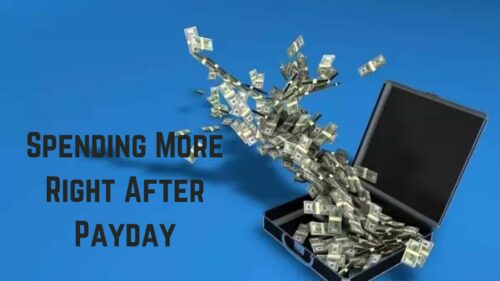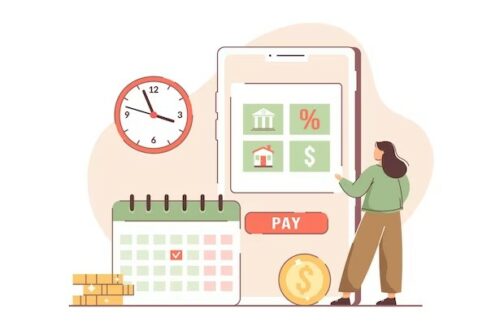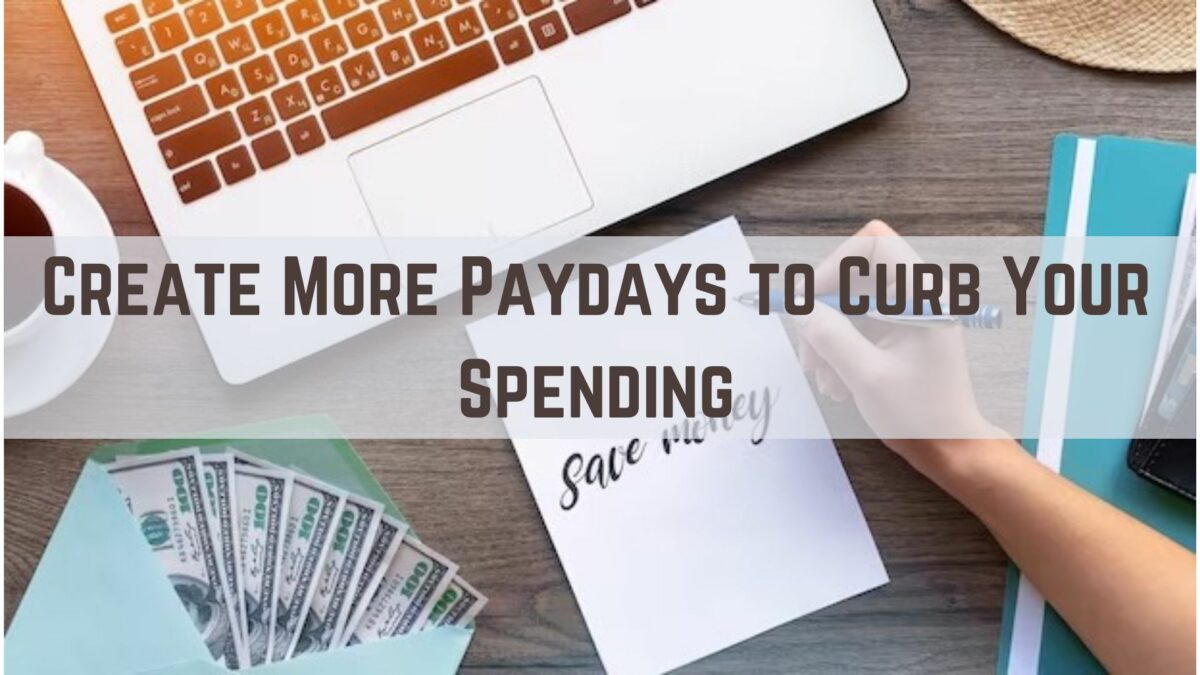“For a lot of people, the weekly paycheck is ‘take-home pay’ because home is the only place they can afford to go with it.”
–Charles Jaffe
When I was in the military, we were paid at the end of each month. It was nice getting that leave and earnings statement (LES), which was the document which told us how much we’d been paid and how much leave – the military term for vacation – we’d accrued. All of the soldiers would pile into “the club” (it didn’t matter what the name of the actual bar was, it was always called “the club”) and drink it up because they were flush with cash.
If you ever were left without a calendar in your life and needed to know what day of the month it was, you could tell by looking at how packed “the club” was. At the beginning of the month, everyone was free and loose with their money because they’d just been paid. By the end of the month, you’d have thought that “the club” was lacing their drinks with quinine, because nobody was in there. Conversely, the mess hall would be empty at the beginning of the month and packed by the end of the month, as everyone tried to stretch their remaining dollars to get to the end of the month.
Even though we all knew that we had to make the money last for a month, Monkey Brain saw the bank account balance and whooped for joy. There was money in the account, so party like there is no tomorrow! Monkey Brain didn’t care about next week, much less the end of the month. There was money in the account NOW, and it was time to boogie!
You’ve probably noticed this feeling too, even if you’ve never actually stopped to think about it. When you get a paycheck, you feel more confident, and you’re probably a little looser with your spending. As you reach the end of the period that the paycheck is supposed to last, you get tighter and tighter, trying to stretch to the next paycheck. We’ve all been there, and most of us still live that way.
Why Do You Spend More Right After Payday?

This is a question that Stephen Spiller of Duke University wanted to answer, so he looked at five studies to help answer that question.
Here are a couple of the reasons why we spend more right after payday:
- We don’t look at opportunity costs. The longer the interim between paychecks, the less likely we are to look into the future. It’s harder for us to defeat Monkey Brain if we have to look 4 weeks into the future than if we have to look 1 week into the future.
- We view our present selves as having resources. Since there’s money in the bank account, we might as well spend it, right? That’s the Monkey Brain approach, and seeing that money in the account tempts us to spend it. We discount future pain for present gain just as we say that we’ll go to the gym tomorrow and choose to sit in front of the TV and gorge ourselves on nachos.
The crux of the cause for us to spend money now is that the longer the time horizon that we have to plan for money in our account, the less likely we are to consider the implications of having limited amounts of money in the future will be.
How, then, can we counteract this Monkey Brain tendency to spend everything as soon as possible, especially if we only get paid monthly?
Creating the Illusion of Weekly Paychecks to Curb Spending

If you find yourself in the poorhouse a few days before the monthly paycheck arrives, then you can do some things to give yourself more of a perception of control over your money. Here are some tips for how to mentally make that paycheck stretch further.
- Budget. If you know where every dollar that you’re getting in is going to go, then there’s less temptation to spend money which isn’t already budgeted.
- Sign the top of the budget. You might not think that this will have much of an impact on how you spend your money, but if you sign something on the top, according to a study by Northwestern University , you’re more likely to be honest.
- Have money from the paycheck deposited into a separate account, and then automatically transfer money into your spending account weekly. This serves the purpose of not letting Monkey Brain see the other money that’s available. It’s much easier to account for one week than it is to account for four or more weeks. So, by having less available to spend, you’re less likely to make mistakes. Also, you’ll reduce the magnitude of the mistakes you actually do make.
- Remember that the average month has more than four weeks. It’s easy to think of a month as four weeks, but 4 X 7 = 28, and most months have 30 or 31 days. Don’t underbudget yourself and force yourself to live for 9 or 10 days on a 7 day budget.
- Pay yourself on Monday. I’m sure you can think of anecdotes of people who get paid every Friday, cash the checks, and then have wild weekends, only to be short of money by Monday. Why? The temptations arise on the weekends. You don’t have to go to work, and a lot of fun activities usually occur on the weekend. So, instead of walking around with a loaded gun in a shooting gallery, reduce the temptation. By transferring the money to your account on Monday, you have all week to plan and fewer temptations to fritter the money away. By the time the weekend rolls around, you won’t have as much money remaining with which to make mistakes, and, if you do blow it all in a bender, you don’t have long to make it until you can replenish your funds.
It’s a long way to go from the 1st to the 31st of each month. By taking these steps, you can prevent letting Monkey Brain make that an even longer stretch of time.
Author Profile
- John Davis is a nationally recognized expert on credit reporting, credit scoring, and identity theft. He has written four books about his expertise in the field and has been featured extensively in numerous media outlets such as The Wall Street Journal, The Washington Post, CNN, CBS News, CNBC, Fox Business, and many more. With over 20 years of experience helping consumers understand their credit and identity protection rights, John is passionate about empowering people to take control of their finances. He works with financial institutions to develop consumer-friendly policies that promote financial literacy and responsible borrowing habits.
Latest entries
 Low Income GrantsSeptember 25, 2023How to Get a Free Government Phone: A Step-by-Step Guide
Low Income GrantsSeptember 25, 2023How to Get a Free Government Phone: A Step-by-Step Guide Low Income GrantsSeptember 25, 2023Dental Charities That Help With Dental Costs
Low Income GrantsSeptember 25, 2023Dental Charities That Help With Dental Costs Low Income GrantsSeptember 25, 2023Low-Cost Hearing Aids for Seniors: A Comprehensive Guide
Low Income GrantsSeptember 25, 2023Low-Cost Hearing Aids for Seniors: A Comprehensive Guide Low Income GrantsSeptember 25, 2023Second Chance Apartments that Accept Evictions: A Comprehensive Guide
Low Income GrantsSeptember 25, 2023Second Chance Apartments that Accept Evictions: A Comprehensive Guide

